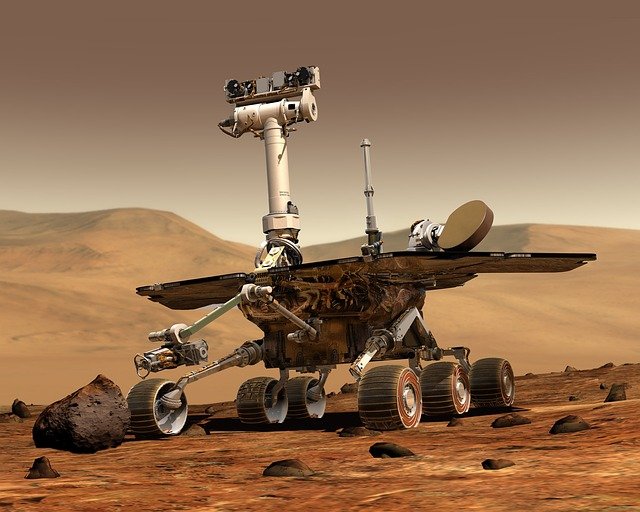NASA Perseverance rover safely touches down on Mars: What do the aliens think of us now?


On Feb. 18, 2021, the National Aeronautics and Space Administration (NASA) celebrated a successful landing on Mars with its largest and most advanced rover, Perseverance. After a seven-month-long journey, Perseverance begins its two-year mission of analyzing the Red Planet’s geology, climate and astrobiology.
Being the size of a car, Perseverance will roam the Jezero Crater as a robotic geologist, scooping rocks and piles of dirt and storing them in its metallic stomach. NASA’s goal is to retrieve Perseverance’s collected samples with future spacecraft missions, marking the first attempted mission to bring Mars rocks back to Earth.
Bringing pieces of Mars to be examined on Earth would help scientists better understand the planet’s ancient landscape.
Previous research shows evidence of volcanic activity on Mars 4 billion years ago. The gas belched from these volcanos thickened the planet’s atmosphere, trapping heat that allowed the formation of rain clouds, leading to water streams carving paths on Mars’ surface.
NASA hopes Perseverance can uncover more of Mars’ fascinating history and answer more questions about the possibilities of life on Mars.
On Earth, this is a significant triumph for NASA, the science community, and demonstrates the ingenuity and perseverance of the human race. But have we thought about space exploration affecting other planets and their possible inhabitants?
Even before research suggested the possibilities of life on Mars, science-fiction writers theorized other life forms visiting Earth. However, the alien is so rarely credited with discoveries for its species and is often positioned at mercy of the human.
Don’t get me wrong, I’m glad E.T. found home, but humans are now at the doorstep of other life forms, wanting to research their homes and not daring to ask permission.
While humans can’t necessarily communicate with the bacteria colonies found in Mars’ rocks, who knows what’s watching us in the shadows. If this is the case, I won’t blame Marvin the Martian for wanting to blow up Earth if he shows up.
I believe Perseverance’s mission to Mars will prove fruitful for scientists, but what happens if humans ever encounter life from other planets?
I don’t suspect them all to be furry cats named Zunar-J-5/9 Doric-4-7 (Jake for short) or sound like Seth Rogen and be named Paul. Alien life may not even resemble anything we know or imagine.
Regardless of their composition, everyone runs for the hills when they see Ridley Scott’s alien get too close to humans, but only after the humans have disturbed the alien. What happens if we disturb something or someone that is best left undisturbed?
Will space exploration and research lead to World War A (World War Alien)? Maybe not anytime soon, but with our technological advancements in the past hundred years, who knows what will be possible in the next hundred.
I’m not trying to convince you of the existence of aliens; I’ll leave that to the creative minds of conspiracy theorists. My point here is that Perseverance’s mission is significant for all of us because it’s monumental in the history and future of space exploration.
But who knows what Perseverance and its successors will find and how much of it will be public knowledge and not locked up in Area 51?

